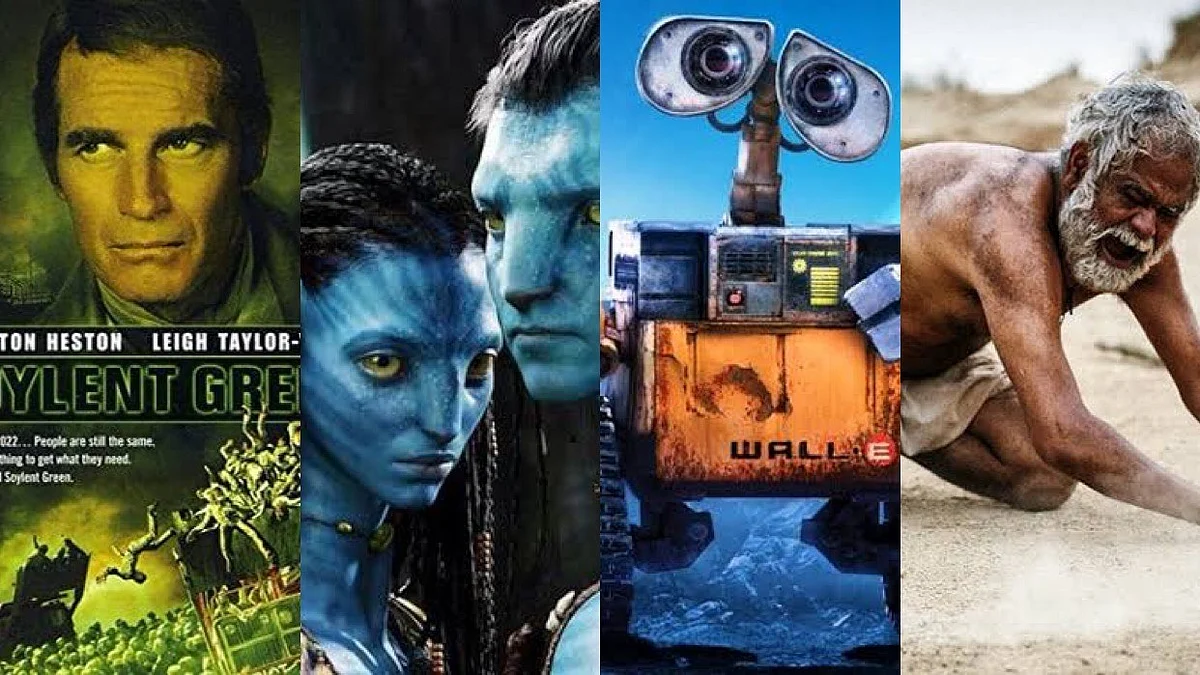WALL-E to Avatar: Here’s a List of Movies That Talk About Climate Change
Several movies adeptly deal with the subject of climate change and act as cautionary tales.

advertisement
The first of the Sixth Assessment Report by the Intergovernmental Panel on Climate Change (IPCC), released 9 August, 2021, provided an updated estimate of the carbon budget—the maximum amount of carbon dioxide (CO2) that can be emitted while still having a chance to limit warming to 1.5°C or 2°C. Although the opportunity to retain global warming under 1.5 degrees Celsius (°C) above pre-industrial levels may have been adrift, the report stresses that human actions must still strive to keep global warming under 2°C, which shall ultimately determine the future course of climate change.
Art and infotainment is an important tool of amassing change. Cinema must be used in critical times as a medium to influence and to broadcast calls to action.
Multiple movies have attempted to warn of the perils of human callousness—either by narratives around preservation, devastation or dystopian futures. Here's a list of films and documentaries that have adeptly dealt with the subject of climate change.
Kadvi Hawa
Kadvi Hawa is claimed to be India's first feature film on climate change.
(Photo Courtesy: Pinterest)
Beginning the list with what is touted as India's first feature film about climate change does not make up for the vacuum of the films on the subject in the country, but is essential nonetheless. Released in 2017, filmmaker Nila Madhab Panda's Kadvi Hawa's launch was supported by the United Nations Environment Programme's (UNEP) general and executive director, Erik Solheim, while addressing the need for creators to make cinema that stirs change. Set in Bundelkhand, the film revolves around a 70-year-old blind man (Sanjay Mishra), fighting climate change to save his son. The film also has Ranvir Shorey and Tillotama Shome in pivotal roles.
Soylent Green
Richard Fleischer's classic sci-fi drama Soylent Green.
(Photo Courtesy: Pinterest)
Directed by Richard Fleischer, Soylent Green is a sci-fi drama released in 1973 that speaks of the grim consequences of climate change. It presents population growth and an endless heatwave that leads to a near-exhaustion of natural resources with uncontrollable poverty. The film strongly attributes the greenhouse effect to be the chief cause behind the crumbling of the world. It's a cautionary tale that shows us a picture of a future that is set in—pick a guess—2022.
WALL-E
WALL-E received the Academy Award for Best Animated Picture in 2009.
(Photo Courtesy: Pinterest)
The film won the Academy Award for Best Animated Picture in 2009. It's a story about a little loveable robot left behind to clean the Earth overflowing with trash, as a result of complete environmental collapse. The former inhabitants—humans—are forced to live in space behind screens. It warns of voracious consumption and lack of accountability but instilling a classic Disney ray of optimism and potential reform. A harsh cautionary tale enveloped in a funny children’s story is considered by many as one of the finest pieces of environmental cinema of the 2000s.
The Day After Tomorrow
The Day After Tomorrow had released in the year 2004
(Photo Courtesy: Pinterest)
Released in 2004, Roland Emmerich’s The Day After Tomorrow was a blockbuster depicting the catastrophic and chilling—quite literally—effects of climate change as the world descends into the ice age. As a consequence of global warming, ocean currents that circulate water around the world shut down, heating the tropics and cooling the North Atlantic. A reverberating “If we don’t act now, it’s gonna be too late” forms the core of the message. The film had a massive impact on the international audience too.
Silent Running
A still from Silent Running.
(Photo Courtesy: Pinterest)
The 1972 post-apocalyptic science-fiction film, Silent Running is an often overlooked name in the genre of eco-cinema. Directed by Douglas Trumbull, the film is set in the future on an Earth devoid of flora and fauna. The story features a forest ranger with the last pieces of Earth's plant and animal life going to extreme lengths to protect the remnants. Funnily, due to financial constraints, the film was shot on a decommissioned military aircraft carrier and not a studio, resulting in a bewildering symbolic significance. A symbol of imperial power ironically found a place in a classic anti-establishment film.
The Age of Stupid
Franny Armstrong’s The Age Of Stupid.
(Photo Courtesy: Pinterest)
Franny Armstrong’s The Age Of Stupid is a documentary drama starring the Oscar-nominated Pete Postlethwaite, wherein he plays an old man surviving a ravaged world in 2055. The film has a deliberate and explicit shock value to urge viewers to take action and reduce our carbon emissions. The director has also famously said, “Once you really understand climate change, it would be ridiculous to work on anything else.” The Age of Stupid played a huge part in the formation of the 10:10 carbon reduction campaign, which operates in 45 countries.
Avatar
James Cameron's Avatar had released in the year 2009.
(Photo Courtesy: Pinterest)
James Cameron’s genius and tremendously well-received Avatar is an allegory to the destructive ramifications of climate change. Set in the distant future in 2154, on a distant planet of Pandora, the story revolves around a paraplegic marine replacing his deceased twin brother on a mission requiring his identical genome. With cutting-edge technology, the themes of warfare tactics, overpopulation, pollution and deforestation, global warming, loss of biodiversity through extinction are put across brilliantly. The dangerous consequences of imperialism and resource depletion form the basis of the narrative. Considered a cinematic masterpiece, Avatar is a great addition to the environmental films and the genre of eco-cinema.